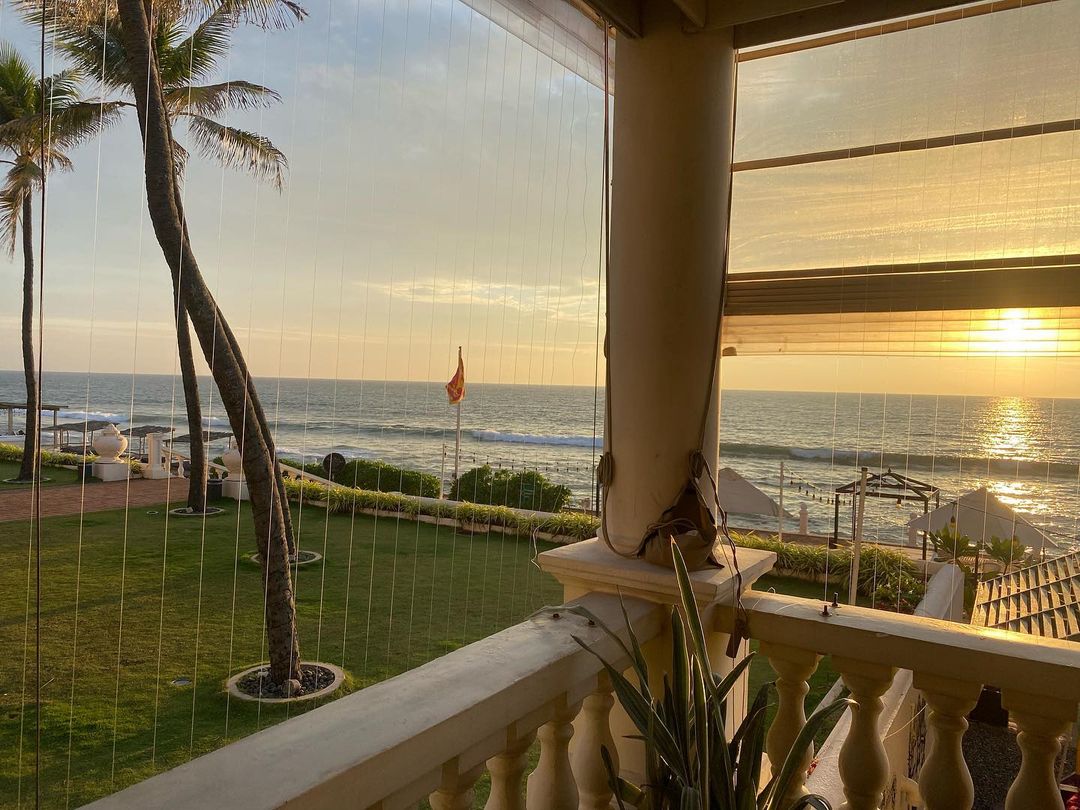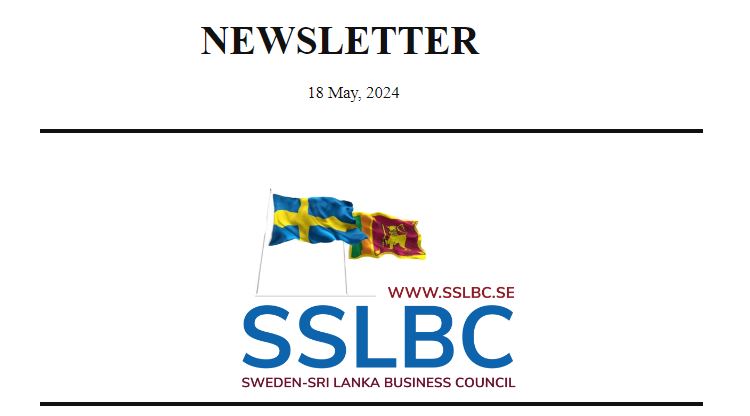Latest ECCSL Magazine article about Sweden-Sri Lanka can be found at page 17
Swiftcourt entering the Sri Lanka market with Blockchain-Enabled
Escrow Payment Service supported by XVC Tech & the XDC Network
Colombo International Tea Convention 2024 – 24th to 26th July, 2024 in Colombo, Sri Lanka
Colombo International Tea Convention 2024 – 24th to 26th July, 2024 in Colombo, Sri Lanka
The Colombo Tea Traders Association in collaboration with the Sri Lanka Tea Board, is organizing the Colombo International Tea Convention in Colombo, Sri Lanka.
Dates : 24th – 26th of July, 2024
Venue : Cinnamon Grand, Colombo
The Convention is expected to attract about 700 delegates who will represent the full value chain, government authorities and regulatory bodies involved in the tea producing countries, tea manufacturers, exporters, suppliers, retailers, buyers, supermarket chains, shippers, logistics providers, finance professionals and academics, etc. from all over the world.
.For more information and registration, please visit;
Three Quick Ones – Lena Skogström
Lena Skogström is one of the senior profiles in the Swedish travel industry. She is currently Vice President of the Pacific Asia Travel Association (PATA). Her relationship with Sri Lanka spans almost 50 years and she has been a representative for Jetwing Travels and Jetwing Hotels. Lena has also worked as a representative for Hong Kong, Singapore and Dubai for many years. For the last 30 years, she has been working voluntarily to promote Sri Lanka as a travel destination to Swedes.

How did your relationship with Sri Lanka begin?
I came to Sri Lanka in 1976 as a tour guide for Club 33, when I was 21. It was an instant love affair. It was a wonderful country that attracted many Swedes. Three planes a week flew from Sweden, and we were 22 tour guides on site taking care of the guests. We offered tours to national parks as well as historical and cultural sites. One week I guided in the northern parts of the island and the other week in the southern parts.
What are Sri Lanka’s main assets as a holiday destination?
I like to say that it is Asia in a nutshell. Nowhere else can you experience so much in one trip. 22 national parks is unbeatable. You can experience culture and history in a unique way. It’s a family and intergenerational destination, meaning it has something to offer different age groups. Sri Lanka therefore has the potential to attract a discerning Nordic traveller with a strong buying power.
How can Sri Lanka gain market share among Swedish travelers?
Awareness must increase. It is still too weak and the image of the destination is unclear. That’s why a focused approach is needed on Sweden and the rest of the Nordic region, which is Europe’s third largest travel market. Influencer partnerships are important, as are well-known ambassadors, but they must be sophisticated. Take inspiration from the work done with the TV program Sweden’s Master Chefs. After a program was filmed from Dubai, bookings there increased by 84%. The increase in visa and hotel prices in Sri Lanka in 2024 is a deterrent for Swedish travelers. Sri Lanka’s unilateral focus on certain geographical markets is also problematic. A 10-year plan is needed for a good geographical market mix.
Newsletter 16th June
Welcome H.E Ambassador Fonseka
On 13th June Sri Lankas new ambassador to Sweden presented his credentials to His Majesty the King.
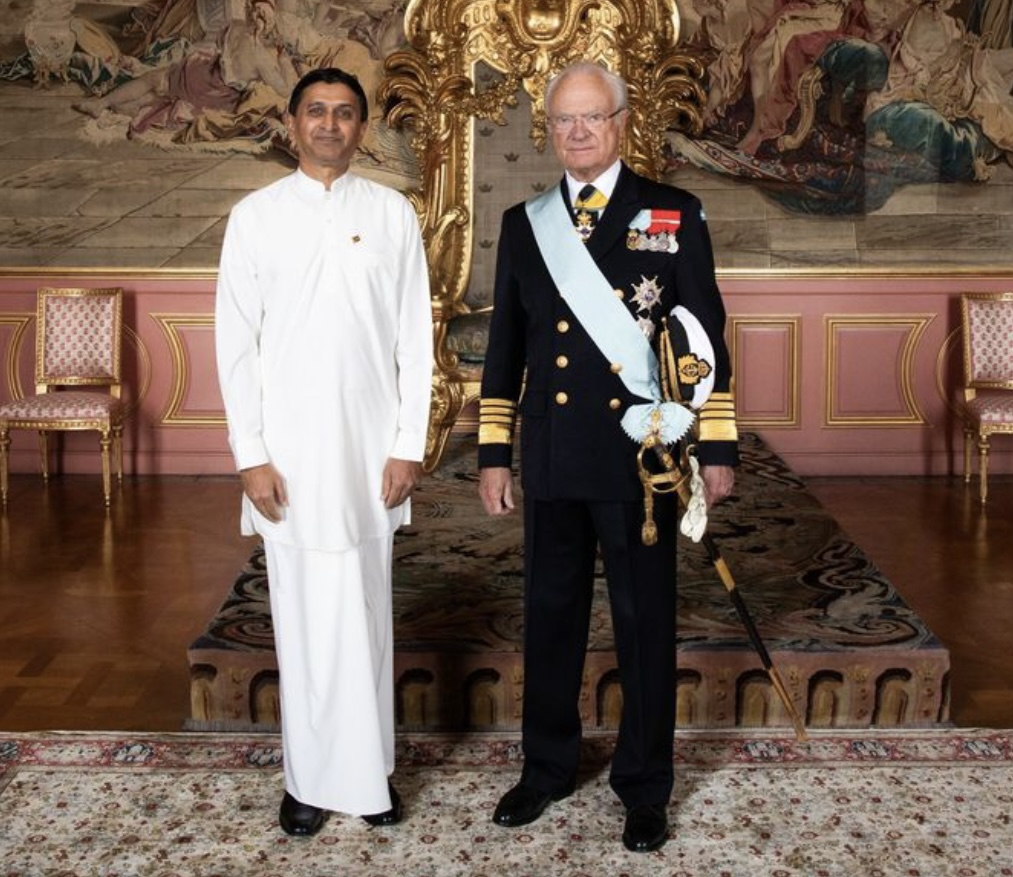
Secretary General Leif I Ohlson 14th June met H E Ambassador Kapila Fonseka at the Embassy of Sri Lanka in Stockholm, Sweden.
Secretary General Ohlson extended a warm welcome to ambassador Fonseka, on behalf of the council, to Sweden.
During the meeting, the Ambassador was informed about
and discussed our business council’s activities and initiatives. The recent delegation with the Swedish Embassy in New Dehli, Business Sweden Swedish companies, and the council to Colombo was also informed about.
The discussions were fruitful, and we believe that this meeting will foster stronger relations between us.
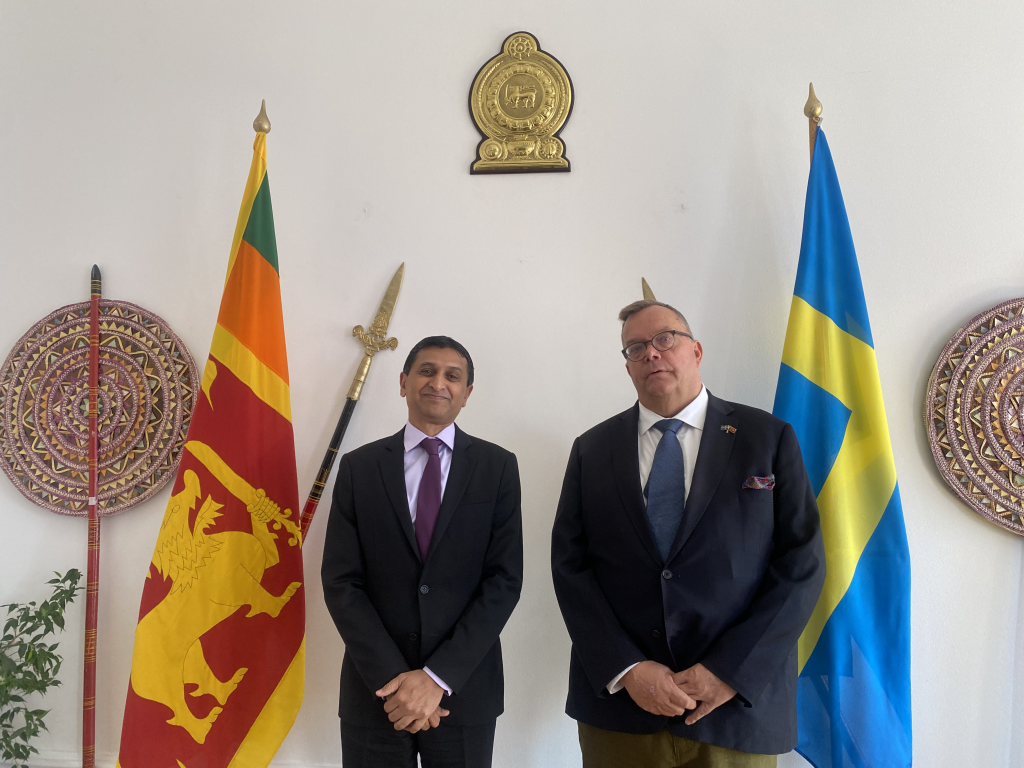
Delegation to Colombo June 2024
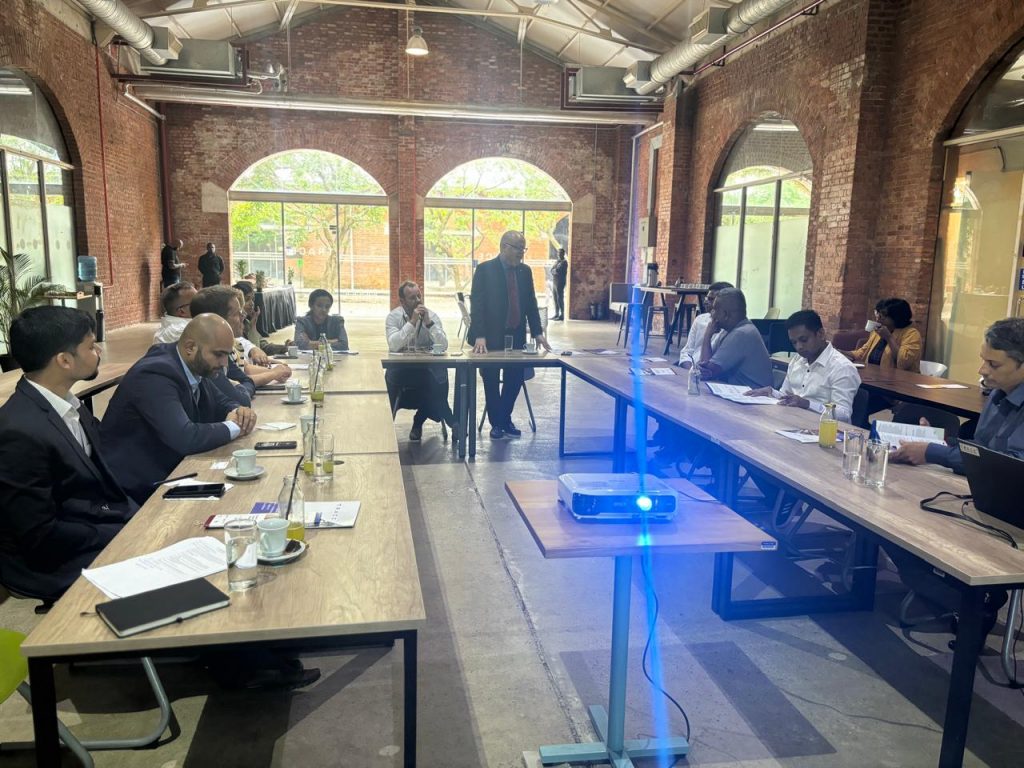
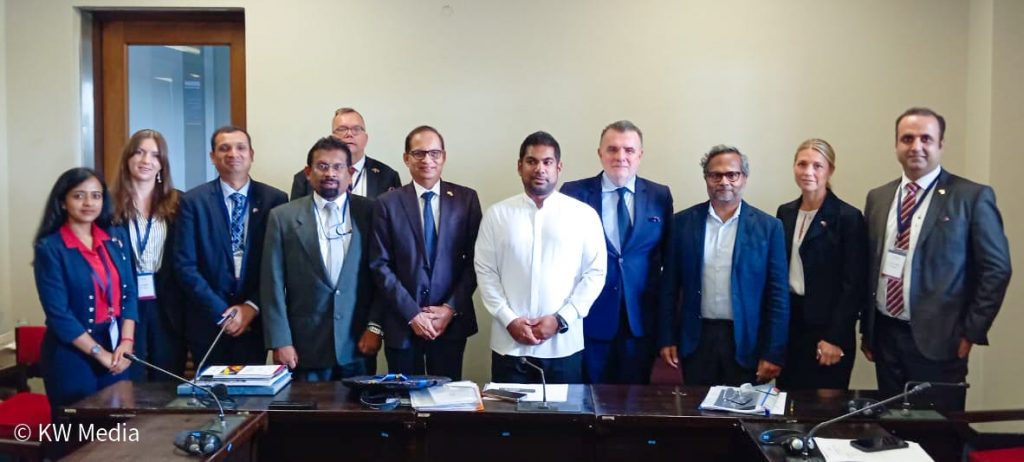
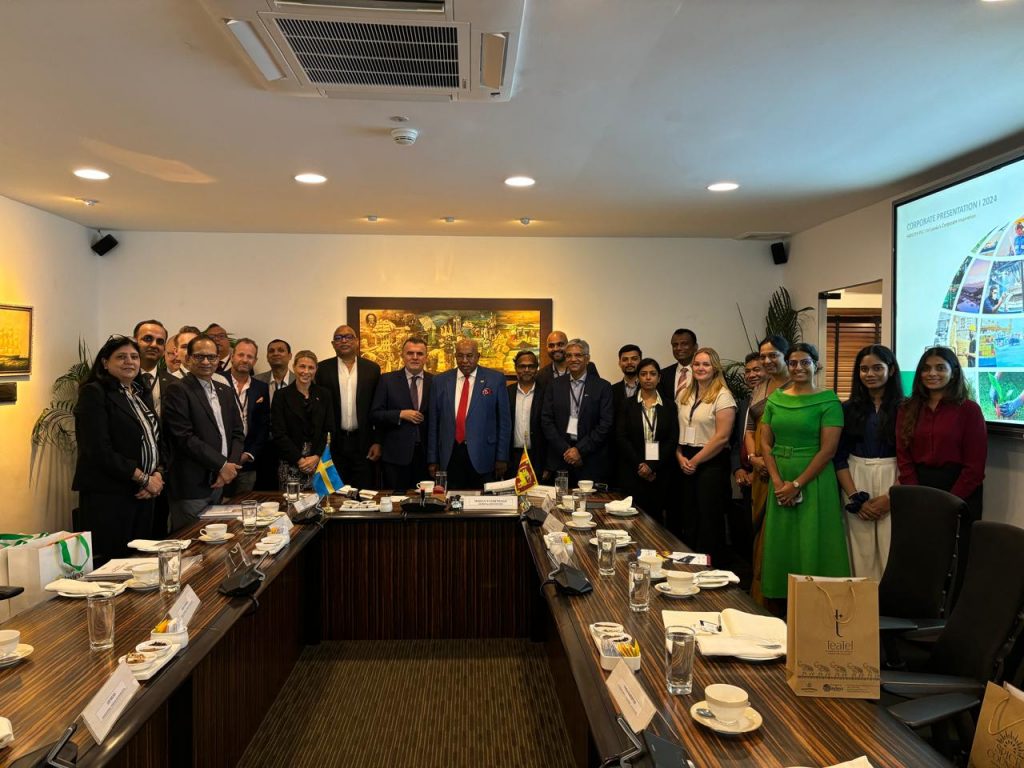
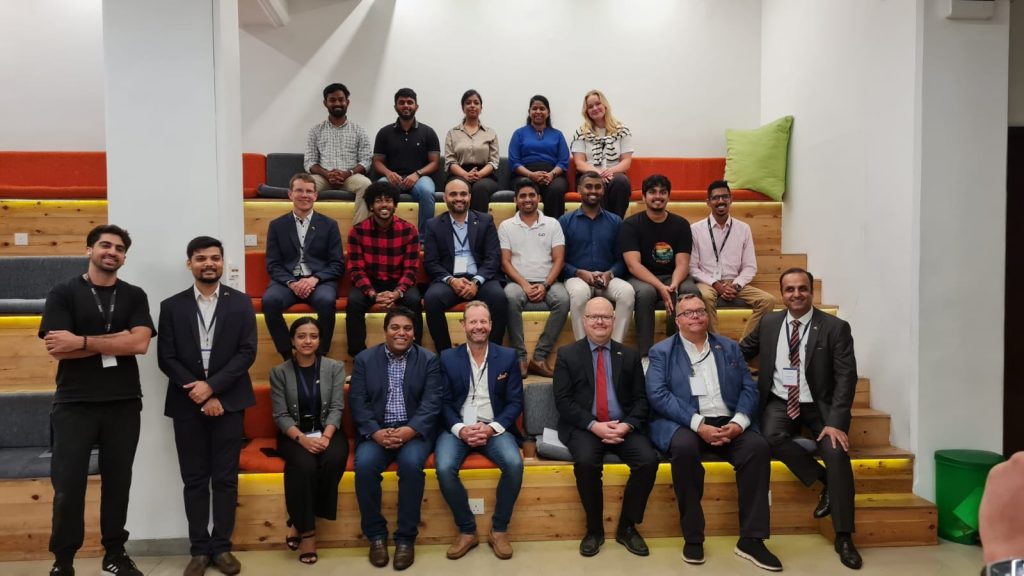
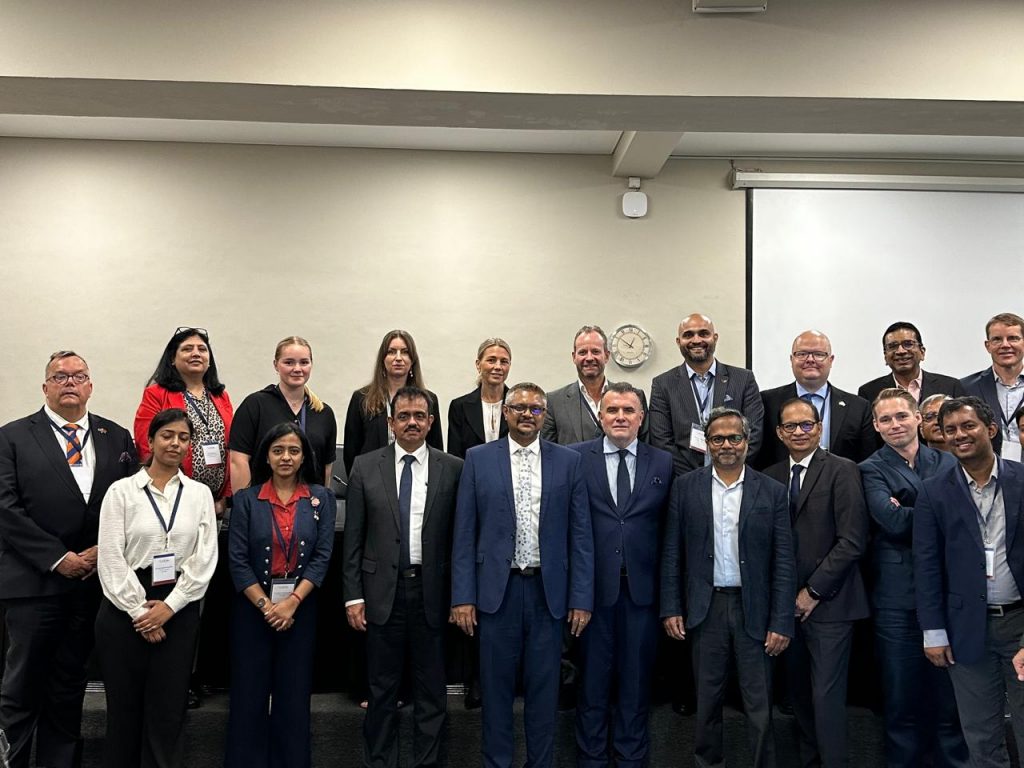
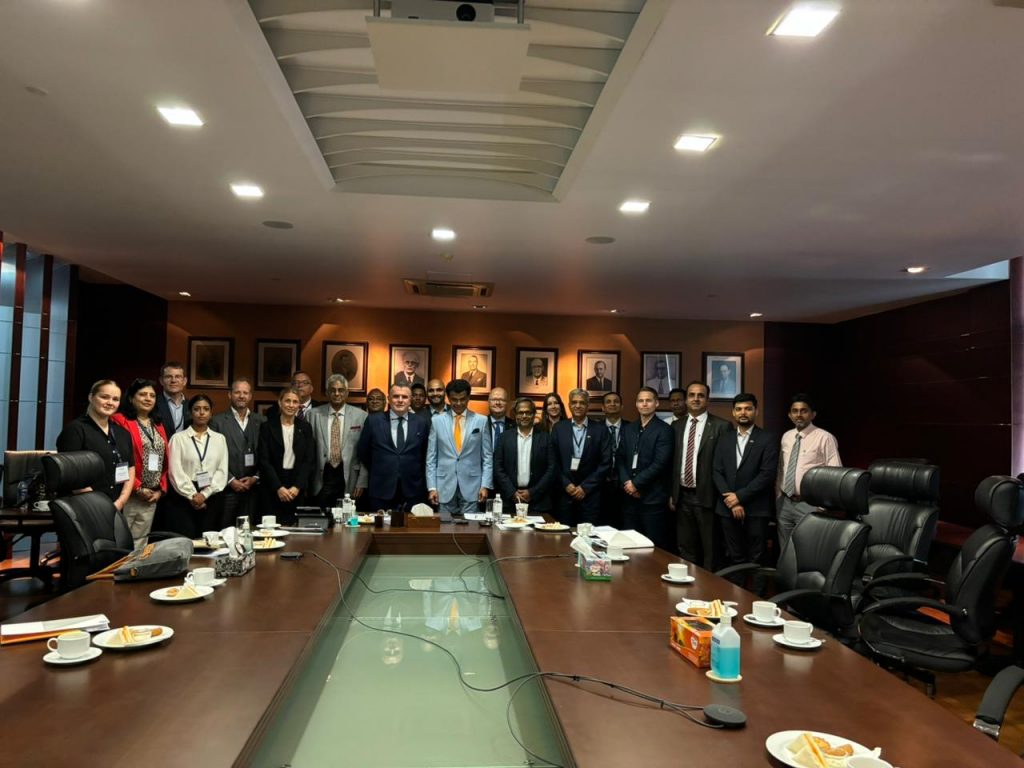
German Newsletter
Our German sister organisation produces a very interesting newsletter
The Chief Economist: The economy is about to turn around
Although times are still tough, businesses are more optimistic about the future, a new survey shows. ”It could be an indication that things will soon turn,” says Sven-Olov Daunfeldt, chief economist at Swedish Enterprise.
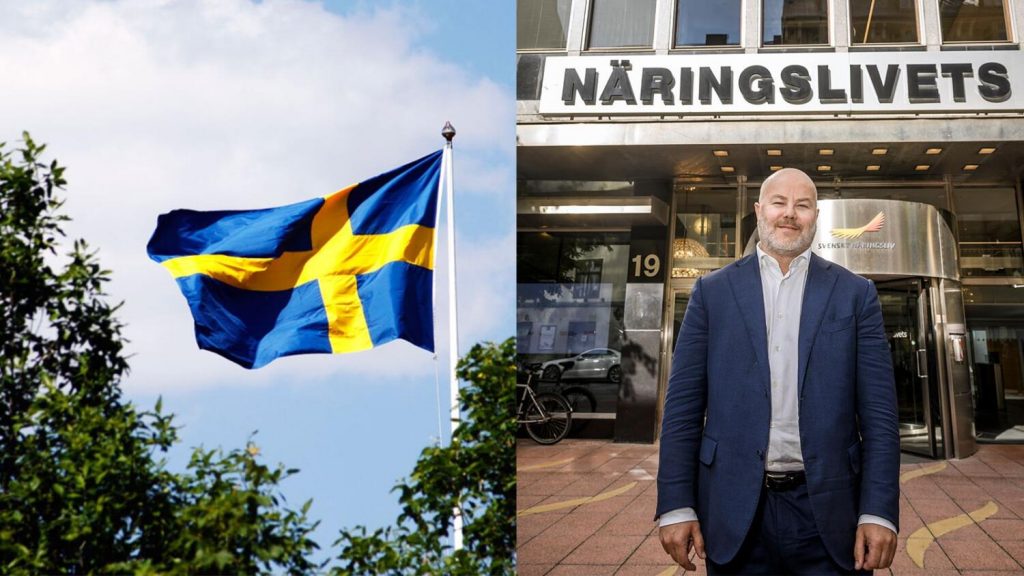
In the current recession, many companies are fighting for their survival and this can be seen, among other things, in an increased number of bankruptcies, increased notices and rising unemployment. But in Svenskt Näringsliv’s survey, the Business Panel, an increased faith in the future is noticeable.
- When we ask the companies about their expectations about the future, we see that there has been a turnaround and they are much more optimistic about the future now than they have been before, says Sven-Olov Daunfeldt, Chief Economist at Svenskt Näringsliv.
According to the business panel, among other things, the risk of notice has decreased. By the end of 2023, 28 percent of companies stated that there was a risk that they would need to notify staff within the next six months. Now it has dropped to 20 percent.
In addition, the same positive trend can be seen when it comes to labor hoarding, that is, when companies have more staff than they actually need in the short term. 30 percent of companies stated at the end of last year that they had more staff than they needed, now that figure is down to 23 percent.
- If you ask about the companies’ expectations for the future, they are basically at a normal level now. It could be an indication that things will turn around soon.
There are also positive signals on the labor market. For example, when it comes to expectations about the number of employees a year from now, the figure lands at 12 percent when you look at the net total, i.e. the percentage of companies that believe in an increase minus the percentage that believe in a decrease. When the companies assess the need to hire compared to 12 months ago, the figure lands at minus 6 percent.
But at the same time, times are still tough. Apart from the pandemic, investments have not been this low since the financial crisis in 2009, according to measurements from Swedish Enterprise. The net number in terms of how companies’ investments have developed over the past year is negative (minus 5). But expectations around investments are expected to increase in a year’s time, the net figure of 7 percent shows. Sven-Olov Daunfeldt believes that the fight against inflation is over and that companies’ positive faith in the future depends on the Riksbank’s interest rate cut.
- We saw quite quickly that the situation became more optimistic after the Riksbank announced at the beginning of spring that they intended to start with interest rate cuts. The companies see that there may be further interest rate cuts and this instills hope that the economy will turn around.
But even if the companies see a light at the end of the tunnel, it is still uncertain when the economy will turn around, he believes.
- There is a lot of psychology in economics and the companies believe that things will get better and they start to invest more and the economy will also turn around. Our surveys show that companies have become more optimistic and this is usually a sign that the economy is about to turn around.
Although the pandemic, the war in Ukraine and a recession have hit many companies hard, it has not affected their faith in the future negatively, he believes. - Many companies have had an extremely tough time, but I believe that it has not negatively affected the companies’ view of the future. Entrepreneurs are generally positive people who prepare themselves for crises and they try to see opportunities in everything.
However, policy has changed as a result of the crises and there is now a greater focus on temporary measures, he believes.
- We have seen a lot of crisis politics and we have to get rid of that. It is not good, but we have to let the market work by itself. Firms that are not productive must be driven out of the market and replaced by other firms that are more productive and more competitive.
- That’s how we get the economy to work well and that’s how we get growth and productivity.
The absolutely most important thing going forward is to use Sweden’s state finances to invest in, among other things, infrastructure and to create a better functioning labor market so that companies can hire the skills they demand, he believes.
- Now politics needs to create the conditions for us to get a stronger growth force in the Swedish economy so that we can get higher growth and productivity in the Swedish business life.
- The skills crisis is still a huge problem, even though we are now in a recession. Now we have to invest in making the companies grow.
